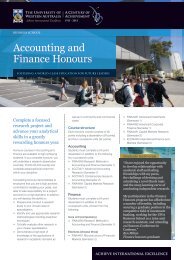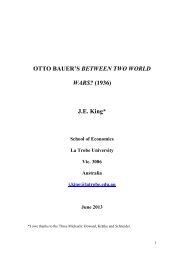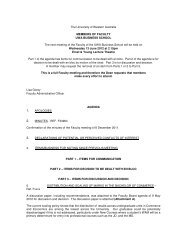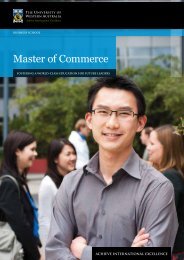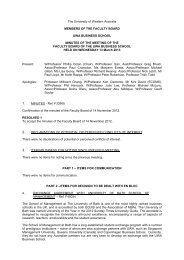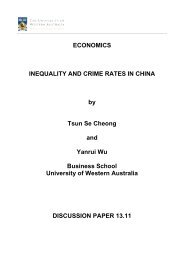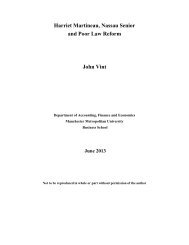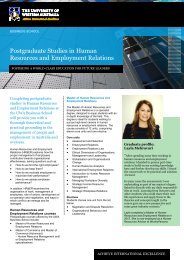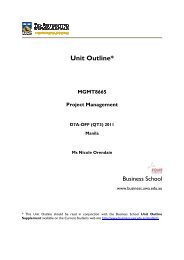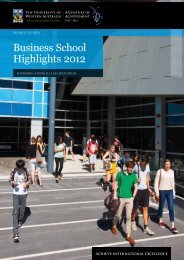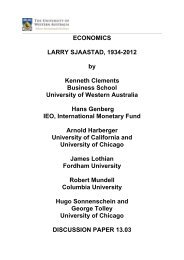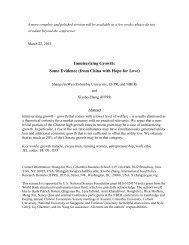A Dynamic Model for determining Inward Foreign ... - Business School
A Dynamic Model for determining Inward Foreign ... - Business School
A Dynamic Model for determining Inward Foreign ... - Business School
Create successful ePaper yourself
Turn your PDF publications into a flip-book with our unique Google optimized e-Paper software.
macro or micro measures taken by them, to implement and advance these objectives within<br />
the system and environment of which they are part (Dunning and Lundan 2008, 223).<br />
2.2 Literature Review and Hypotheses<br />
2.2.1 Political risk<br />
Political risk is a type of risk faced by <strong>for</strong>eign investors, MNfs and governments. It is a risk<br />
that can be understood and managed via reasoned <strong>for</strong>esight and investment. Many studies<br />
have examined the determinants of FDI in a host country. Using different econometric<br />
techniques and periods, Harms and Ursrung (2000), Jensen (2003) and Busse (2004) point<br />
out that MNfs are more likely to be attracted to a democracy. Nevertheless, Egger and<br />
Winner explore the relationship between corruption and inward FDI by using general<br />
equilibrium models and data of 73 developed and less developed countries. They highlight<br />
a clear positive relationship between corruption and FDI which means corruption is a<br />
stimulus <strong>for</strong> FDI (2005, 935-949). The analysis comprises the primary data from 145<br />
affiliates of western MNEs in Turkey via a survey by Demirbag et al, who find that political<br />
risk, financial incentives and culture distance do not have any significant impact on the<br />
perceived per<strong>for</strong>mance of affiliates (2007, 330). On the other hand, according to Busse and<br />
Hefeker political risks have a significant impact on FDI inflows (2007, 401). Institutional<br />
quality and democracy appear more important <strong>for</strong> FDI in services than general investment<br />
risk or political stability (Kolstad and Villanger 2008, 530). According to Cuervo-Cazurra,<br />
corruption, arbitrary corruption and pervasive corruption have a negative influence on FDI.<br />
However, transition economies show high levels of corruption and also high levels of FDI<br />
(2008, 25). Asiedu et al state that the optimal levels of FDI decrease as the risk of<br />
expropriation rises (2009, 269). Consequently, based on this overview of the related<br />
literature, the corollary hypothesis is as follows:<br />
H 1a : There is a negative relationship between political risks and inward <strong>for</strong>eign direct<br />
investment.<br />
2.2.2 Economic risk<br />
Economic risk could be manifested in assessing a country's economic strengths and<br />
weaknesses, which include real gross domestic product (GDP), growth, the annual inflation<br />
rate, and gross national product per head. The previous studies consider that economic risk<br />
as an important variable <strong>for</strong> <strong>for</strong>eign investors to make a decision about investment in a host<br />
5



